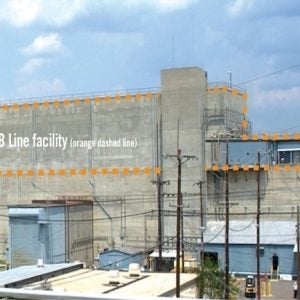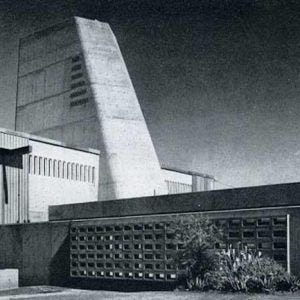The Nuclear Power Company of India (NPCIL), has reported the first pour of concrete on two indigenously-designed 700 MW Pressurized Heavy Water Reactors (PHWRs) at Kakrapar in Gujarat. The ground breaking for the KAPP 3&4 reactors was started in January 2010 with the excavation work completed in four months. Subsequent preparatory activities, (confirmatory sub-soil investigation, geological mapping , rock anchor installation, water proofing, laying of mud mat, reinforcement bar laying etc.) were also completed four months later.
The 700 MW PHWR is a scaled-up version of NPCIL’s 540 MW PHWRs (TAPS-3&4) which have operated at Tarapur since 2005. NPCIL has launched four indigenously designed 700 MW PHWRs, two each at Kakrapar in Gujarat and Rawatbhata in Rajasthan in January and August 2010 respectively. These reactors are slated for commercial operation in the year 2015 and 2016 respectively.
Currently, NPCIL operates 19 nuclear power reactors with an installed capacity of 4560MW. With the first pour of concrete, KAPP-3&4, NPCIL now has five reactors under construction which will yield 3620 MW of additional capacity. Excavation work for another pair of 700 MW PHWRs, RAPP-7&8,at Rawatbhata in Rajasthan is underway with the first concrete pour expected by March, 2011.
NPCIL’s installed capacity is projected to reach to 9580 MW by the year 2016 with the progressive completion of the nuclear power reactors under construction. NPCIL wants to reach 20,000 MW or more by the year 2020 and play a major role in achieving India’s installed nuclear power capacity of 63,000 MW by 2032. NPCIL’s reactors of choice are based on its 700 MW PHWRs, and Light Water Reactors of 1000 MW or greater based on international technical cooperation.






